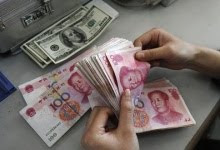

1. Lack of Transparency:
In china Govt. has sole control on the all medium of information there for current status of the market not available to the investors, where in India this information available to every investor easily.
2. Socialistic pattern of investment:
It’s true that after 1970 China implemented some policy of open economy but still China is a socialist country and most of the economy depend on the public sector.
3. Violation of the copyright act:
In China the violation of the copyright act is the serious concern, which demotivate the investor as they are not able to protect goodwill of their product in the market.
4. Wrong data presented by the Govt. Agency:
As china is the socialist country true picture of the economy not available in the market therefore the investor are not ready to take the risk of investment in the stock market.
5. Major dependence on the Foreign Company:
In China most of the investment in the manufacturing sector done by the foreign investor .this is also create a problem of heavy dependence on the foreign company.
6. Unequal distribution of the income:
Growth of the Economy in China is not equal in all part of the country. Here poor become poor and rich become richer day by day which create social unrest in the country.
In India large portion of the investment are made by the Private investor here public as well as private investor are made the investment side by side .In India 2/3 of the total market investment made by the Indian industrialist or by the Indian Govt. dependence on the foreign investment is 1/3 of the total.
After Satyam scam the credibility of the Indian stock market reduce among the foreign investor.
Question arises for the credibility of the SEBI, but only the Satyam scam is not the best criteria to judge the performance of the SEBI.
